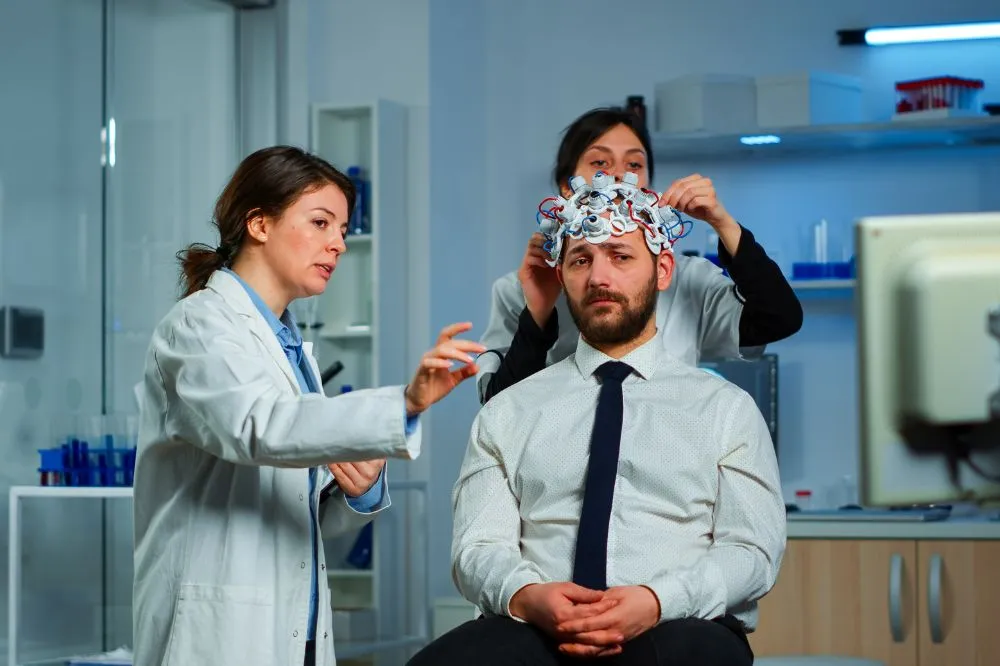Summary: A new study found that veterans are least likely to seek treatment for common health conditions such as sleep and substance use problems. The study also found that veterans were more willing to seek treatment for physical health conditions such as chronic pain and brain injuries but less willing to seek help for mental health conditions like alcohol or drug use and sleep disorders. In addition, there is a link between the willingness to seek treatment among veterans of color and incidents of discrimination.
They have sacrificed to protect their country and experienced unique challenges due to their service. As a result, veterans are more likely to experience certain physical and mental health issues than the general population. They may also have different values and experiences that shape their perspective on life.
One of the most notable differences between veterans and the general population is the high rate of post-traumatic stress disorder (PTSD) among veterans. PTSD is a condition that can develop after someone experiences or witnesses a traumatic event. Veterans who have been in combat are at a higher risk of developing PTSD. Due to their service, they may also experience physical injuries, such as amputations or traumatic brain injuries.
Another difference between veterans and the general population is the unique stressors that veterans may face. For example, veterans may struggle with re-adjusting to civilian life after returning from deployment. They may also have difficulty finding employment or accessing healthcare. Due to these unique challenges, veterans may be more reluctant to seek help for issues such as sleep problems or substance use. They may also have different attitudes toward seeking help and may be less likely to seek help from traditional healthcare providers.
According to a recent study from the University of Missouri School of Medicine, American military veterans are the least likely to seek treatment for common health conditions such as sleep and substance use problems. The study, which included 334 veterans from 46 states, found that veterans were more willing to seek treatment for physical health conditions such as chronic pain and brain injuries but less willing to seek help for mental health conditions like alcohol or drug use and sleep disorders. The study also found a link between the willingness to seek treatment among veterans of color and incidents of discrimination.
The study involved participants from 46 states, with 66% being men and over 70% identifying as a person of color. They were asked to answer screening questions for 15 different medical conditions, such as insomnia, hazardous alcohol use, drug use, PTSD, anxiety, and depression. Additionally, they were asked to rate the importance of treatment for each health condition and their willingness to seek addiction treatment programs.
The research found that most participants were willing to seek treatment for both physical and mental health issues but were more inclined to seek treatment for physical health conditions as opposed to mental health conditions. Furthermore, the study revealed that willingness to seek treatment was highest for chronic pain, chronic medical conditions, and physical brain injuries but lowest for alcohol or drug use and sleep disorders.
The researchers suggest that this may be because sleep and alcohol problems are prevalent among veterans. Thus they may be normalized or minimized to the extent that they are not viewed as problems that need treatment such as telehealth programs. Additionally, the study looked into the impact of discrimination on seeking treatment for physical or mental health issues. The results showed that more frequent experiences of discrimination were associated with less willingness to seek treatment for physical or mental health problems.
For veterans of color, discriminatory experiences were associated with less willingness to seek treatment, but only among those who denied using other strategies for coping with stress.
The study suggests that empowering veterans to utilize healthy coping methods may mitigate the negative impact of discriminatory experiences on treatment-seeking. Additionally, doctors treating veterans must be aware of these issues, as without handling these mental health problems treating physical ailments or chronic pain may be challenging in the population group.
It is our mission to bring real hope and transformational change to patients who would otherwise be consigned to a lifetime of medications, doctor’s visits, and suffering. We expose misaligned incentives and return the power of health to the individual. We believe empowered individuals change their communities. We use a combination of lifestyle intervention, medication management, and emerging scientific research to help our patients. When you are ready or have questions, reach out.
Medical Disclaimer: Keep in mind that the content provided is not direct medical advice for patient care, but is provided for thoughtful discussion.






